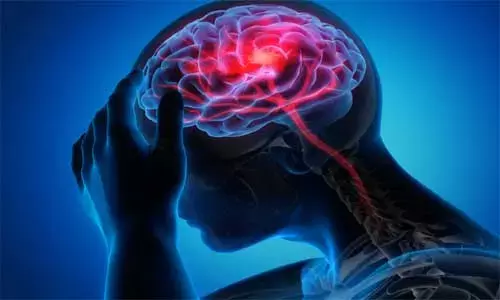- Home
- Medical news & Guidelines
- Anesthesiology
- Cardiology and CTVS
- Critical Care
- Dentistry
- Dermatology
- Diabetes and Endocrinology
- ENT
- Gastroenterology
- Medicine
- Nephrology
- Neurology
- Obstretics-Gynaecology
- Oncology
- Ophthalmology
- Orthopaedics
- Pediatrics-Neonatology
- Psychiatry
- Pulmonology
- Radiology
- Surgery
- Urology
- Laboratory Medicine
- Diet
- Nursing
- Paramedical
- Physiotherapy
- Health news
- Fact Check
- Bone Health Fact Check
- Brain Health Fact Check
- Cancer Related Fact Check
- Child Care Fact Check
- Dental and oral health fact check
- Diabetes and metabolic health fact check
- Diet and Nutrition Fact Check
- Eye and ENT Care Fact Check
- Fitness fact check
- Gut health fact check
- Heart health fact check
- Kidney health fact check
- Medical education fact check
- Men's health fact check
- Respiratory fact check
- Skin and hair care fact check
- Vaccine and Immunization fact check
- Women's health fact check
- AYUSH
- State News
- Andaman and Nicobar Islands
- Andhra Pradesh
- Arunachal Pradesh
- Assam
- Bihar
- Chandigarh
- Chattisgarh
- Dadra and Nagar Haveli
- Daman and Diu
- Delhi
- Goa
- Gujarat
- Haryana
- Himachal Pradesh
- Jammu & Kashmir
- Jharkhand
- Karnataka
- Kerala
- Ladakh
- Lakshadweep
- Madhya Pradesh
- Maharashtra
- Manipur
- Meghalaya
- Mizoram
- Nagaland
- Odisha
- Puducherry
- Punjab
- Rajasthan
- Sikkim
- Tamil Nadu
- Telangana
- Tripura
- Uttar Pradesh
- Uttrakhand
- West Bengal
- Medical Education
- Industry
Reperfusion therapy after stroke increases seizures risk regardless of therapy used, finds study

USA: One in 15 (6%) of ischemic stroke patients treated with reperfusion therapy develop seizures, regardless of the type of therapy, according to a recent study in the journal Stroke.
The choice of reperfusion therapy may be influenced by the balance of harms and benefits. Post-stroke seizures increase the risk of poor outcomes and death. Alain Lekoubou, Penn State University, Hershey, PA, and colleagues performed a systematic review and meta-analysis to assess the risk of incidence of seizures after acute stroke reperfusion therapy -- intravenous thrombolysis [IVT] with r-tPA [recombinant tissue-type plasminogen activator], mechanical thrombectomy or both.
The researchers searched online databases for articles published between 1995 and October 28, 2019. The primary outcome was the overall and treatment specific pooled incidence of poststroke seizures (PSS) following acute reperfusion therapy. The pooled incidence of early poststroke seizures and late poststroke seizures was also computed separately for all studies. The researchers derived the PSS risk associated with IVT in the pooled cohort of patients who received only IVT.
The small number of studies (<3) that reported on the PSS risk associated with mechanical thrombectomy alone or in combination with IVT did not allow the researchers to compute an estimate of the risk of seizures associated with this therapy. A total of 13 753 patients were identified. They had a stroke, of which 592 had seizures.
Key findings of the study include:
- The pooled incidence of PSS was 5.9 %.
- PSS incidence rates among patients with stroke treated with IVT, mechanical thrombectomy, and both were respectively 6.1%, 5.9%, and 5.8 %.
- The incidence of late PSS was 6.7% and that of early PSS was 3.14%.
- The pooled odds ratio for the association between IVT and PSS was 1.24.
"The findings of this meta-analysis suggest that about one in 15 ischemic stroke patients treated with IVT, mechanical thrombectomy, or both develop seizures independently of the specific reperfusion treatment that they received," concluded the authors.
The study, "Incidence and Association of Reperfusion Therapies With Poststroke Seizures: A Systematic Review and Meta-Analysis," is published in the journal Stroke.
Dr Kamal Kant Kohli-MBBS, DTCD- a chest specialist with more than 30 years of practice and a flair for writing clinical articles, Dr Kamal Kant Kohli joined Medical Dialogues as a Chief Editor of Medical News. Besides writing articles, as an editor, he proofreads and verifies all the medical content published on Medical Dialogues including those coming from journals, studies,medical conferences,guidelines etc. Email: drkohli@medicaldialogues.in. Contact no. 011-43720751


